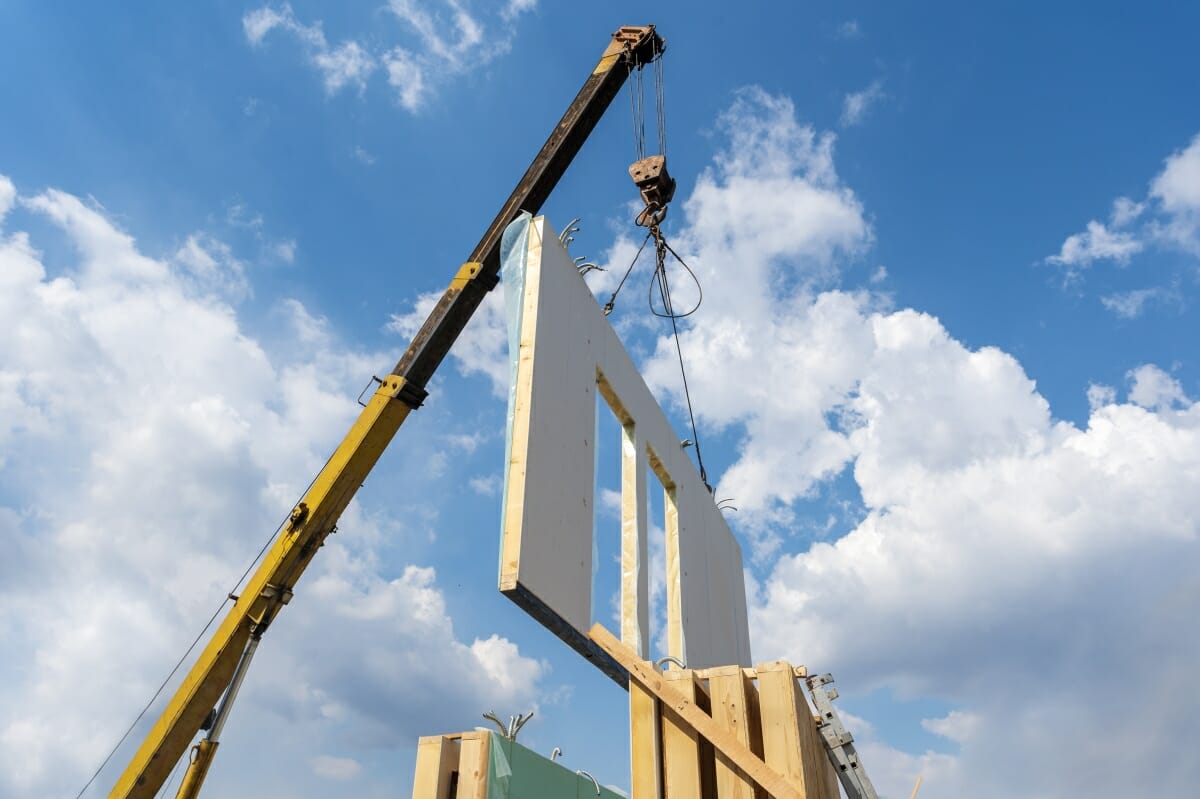
Modular construction needs to be at the heart of the Government’s housing strategy ~
A report compiled by the Government’s modern methods of construction (MMC) champion Mark Farmer and Mike De’Ath from architectural group HTA Design suggests that the Government should build 75,000 modular homes every year until 2030. Fulfilling this target would account for 25 per cent of the existing housebuilding goal of 300,000 homes. Here Nick Cowley, managing director of windows and doors supplier for modular builds, Euramax, explains why he agrees that the UK Government should take modular housebuilding more seriously.
The Blueprint for a housing led industrial strategy presents MMC as a promising method that will aid the success of the Government’s housebuilding target, and will play a vital role in the construction industry’s COVID-19 recovery plans. Housing delivery faced massive disruption in 2020, and is likely to endure lasting impact. Prime Minister Boris Johnson and his Government have vowed to “build, build, build” to counteract the deceleration of the construction sector, placing housing at the centre of the recovery agenda.
But, with a complicated road to recovery still ahead, the construction sector must use cost and quality effective methods to navigate this path. Let’s look at why we should “build, build, build”, using the modular method.
Reaching goals
Long before the pandemic hit, the Government outlined targets to increase the performance of the construction industry. Construction 2025, a report published by the Government in 2013, envisioned a 33 per cent reduction in construction costs, 50 per cent faster delivery times and a 50 per cent reduction in greenhouse gases emitted by the built environment.
We’re five years away from these proposed targets, and even more pressure has been placed on the industry since 2013. Modular construction is already proving its value in driving the industry towards these targets. The speed of MMC is well known — we only have to consider the speed at which the world’s tallest modular construction was fabricated, with 44 stories craned into place in just 31 months
The increasingly favoured volumetric MMC approach involves fabricating fully finished modules that include assets such as fitted kitchens and bathrooms. These units deliver a complete turnkey solution, with little need for external parties to work onsite, facilitating a smoother collaboration for quicker completion times.
Increased sustainability
Like all forms of manufacturing, the construction industry faces increased pressure to lower its carbon emissions and contribute towards global climate goals. According to some studies, construction is responsible for up to 50 per cent of climate change, 40 per cent of energy usage globally, and 50 per cent of landfill waste.
With the climate and housing crises running in parallel, it’s key that we find ways of building better, smarter buildings. Many modular construction companies are adopting an environmental approach throughout their supply chain. Incorporating eco-friendly building materials is now an innate part of the modular building process, lowering the environmental impact of prefabricated builds and reducing their overall material consumption.
The reduction of material waste is largely down to the controlled manufacturing environment that facilitates modular production. Obsolete materials that would typically be sent to a landfill if they were unused onsite can instead by recycled for other projects being hosted at the facility. Constructing modules at an offsite location also reduces the amount of energy that’s required during the project. Everything from bathroom tiles to windows and doors are integrated at once, reducing assembly time and meaning fewer partners need to be called onto the production site.
Not
only does the UK need to build more homes, but these homes must be built to a higher standard, in less time and help meet pressing environmental targets. Farmer and De’Ath’s Blueprint closes with ambition — that building 75,000 modular homes each year will present the UK’s construction industry as “an international exemplar in innovative housing delivery and [that] drives standards in the rest of the new build housing market.” For Euramax, this call for consideration marks the recognition of modular construction as a viable solution to many challenges in the UK’s built environment — a solution we wholeheartedly support.
Euramax supplies PVCu windows and doors and composite doors that can meet the specifications of any modular build. To learn more about our products, visit the website today.
